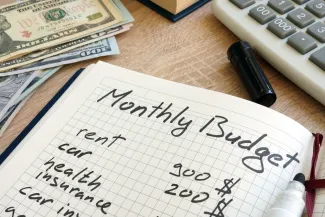
Colorado AG Weiser pitches streamlined permitting, renter protections in affordable housing plan
Colorado should aim to add 40,000 “attainable” owner-occupied homes and decrease costs for 100,000 renters by 2035, Attorney General Phil Weiser said Thursday, as his campaign for governor rolled out a housing platform he said would cater to the needs of all Coloradans.
“I want Coloradans to know that I am confronting this challenge with a sense of urgency, seriousness, and creativity, bringing bold leadership that will focus on this problem,” Weiser told Newsline an interview. “Whoever you are, a renter, you own your own home, you live in the urban areas, rural areas, our platform is comprehensive and addresses across the board. I’m the only candidate who can say that.”

Weiser’s proposed policies to increase housing stock and affordability in Colorado include speeding up construction permitting processes, streamlining government housing programs, supporting first-time home buyers and preserving existing affordable housing units for renters.
“When I talk to Coloradans, affordability, particularly with regard to housing, is often the first topic on their minds,” Weiser said. “It’s particularly a concern for key professionals, like teachers, law enforcement officers, and nurses who are having a harder time affording to live in communities where they work.”
If elected, Weiser would appoint a cabinet-level chief housing officer and create a state housing innovation team that would coordinate all state housing efforts. Currently, multiple state agencies work on housing policy, which Weiser said makes it “not always as coordinated or as focused.” For a large priority like housing, Weiser said it’s important to have a point person to lead and “help drive the sorts of outcomes we want.”
A housing innovation team would look for solutions that have worked in other cities and states and determine if any could work in Colorado. An example of that work could include looking at buildings school districts no longer use as an opportunity for employee housing. He also said that legislation to lower permitting fees for affordable housing projects, which are currently the same as fees for multi-million dollar homes, could incentivize more affordable construction.

He also wants to work against corporate landlord abuses, including junk fees and rent-setting algorithms, which he challenged as attorney general. The Colorado Legislature passed a bill banning the practice, but Colorado Governor Jared Polis vetoed it. Weiser said he would have signed the bill into law, adding that his track record and expertise as attorney general show a “demonstrated commitment to standing up for consumers,” and he’d aim to continue that work as governor in collaboration with the next attorney general.
Weiser is running against U.S. Senator Michael Bennet for the Democratic nomination for Colorado governor. Bennet announced his housing platform in September. Whoever wins the Democratic primary in June 2026 will likely be favored to win the general election. Colorado hasn’t had a Republican governor since Governor Bill Owens left office after the 2006 election.
Most of the state’s housing funds come from Proposition 123, a measure Colorado voters approved in 2022 that dedicates an additional $300 million annually to the state’s affordable housing efforts. It protects the additional revenue by exempting the funds from the annual limits set by the Taxpayer’s Bill of Rights, the 1992 state constitutional amendment that places restrictions on Colorado’s tax and spending levels.
The Colorado Legislature in recent years has passed several laws reforming land use policies in the state to encourage additional housing construction. That includes laws to streamline modular and manufactured housing, expand the parts of the state where accessory dwelling units are universally allowed, incentivize denser housing around transit hubs, and reduce litigation risks for construction defect claims. Colorado Governor Jared Polis has made “More Housing Now” a key goal throughout his second term as governor.
Demographers estimate Colorado needs about 100,000 more units to meet the housing demand in the state.

















